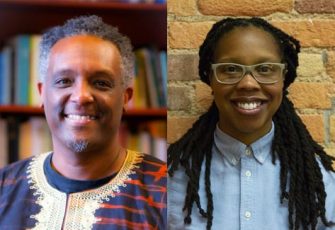 On June 19, the weekly People’s Historians Online mini-class featured a conversation between Greg Carr and Jessica Rucker about Reconstruction and Juneteenth.
On June 19, the weekly People’s Historians Online mini-class featured a conversation between Greg Carr and Jessica Rucker about Reconstruction and Juneteenth.
The session addressed themes of our campaigns to Teach Reconstruction and to teach about voting rights on this 150th anniversary year of the 15th Amendment and an election year. Here are just a few reflections from participants on what they learned. (More reflections at the end of this page.)
The concept of how formerly enslaved people were FREED but not FREE, and how we question the idea of Reconstruction because it was a new FOUNDING, and we’re in a third phase of that right now. I also appreciated references to other past movements when discussing today’s moment of anti-police brutality/white supremacy, and what our role as educators is.
The idea that we are in a 3rd Reconstruction or Founding. This notion helps me brainstorm a the theme for my social studies classes next school year looking at citizenship and our role in contributing to the reality of a global citizenship.
Video
Video of the full event, except the breakout sessions.
Audio
Listen to the recording of the session on these additional platforms, and hear an audiogram from the session below.
Resources
Resources shared by the presenters and in the chat box.
Here are some of the dates Dr. Carr listed.
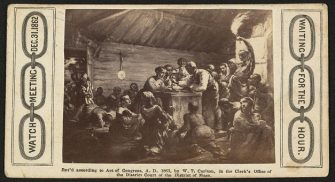 |
This Day in HistoryJuly 5, 1852: Frederick Douglass gave the address, “The Meaning of July Fourth for the Negro” |
Participant Reflections
Here are some of the responses by participants from the session evaluation.
What was learned
Responses to the question: What was the most important thing (story, idea) you learned today and what may you do with what you learned?
Reconsidering the particular moment we’re living as a a “founding” rather than as a third reconstruction. Powerful!
Dr. Carr was an amazing resource. There is so much I learned from being blessed to hear him speak. I copied and shared a plethora of resources I will share with my school.
I loved listening to the different days of celebration of Juneteenth, the idea of letting the young people “drive the car”
I loved the quote “citizenship shouldn’t shrink your humanity.” I love the idea that activism is intergenerational. I love learning the connection between reconstruction and what is happening today.
The role of Mexico and enslaved folks going South into Mexico- had never been taught that. Also, the re-emphasis of letting youth lead- really wanting to be in that role myself as someone who is 36.
I love the idea of not calling this period a third Reconstruction, but a Founding. I tried to quote Dr. Carr – “Are we founding a new society rather than a 3rd Reconstruction?” I want to pose this “thick” question to my students as we talk about Juneteenth and tie into the current events with the Black Lives Matter movement. I also want to discuss with my students about what does July 4 mean to different people (nationally and globally), why are holidays powerful (I think holidays serve as a talking point/intro, but they are NOT the end of a conversation).
The most important idea that I heard today is in relation to Dr. Gregg’s question, “Are we possibly on the verge of founding a society, rather than reconstructing one?” This question has my wheels turning and I definitely will be taking time to reflect upon this idea, with consideration with the socio-political uprisings of present day.
I had not learned about the Contraband Acts prior to today, nor Watch Night, nor the concept of freed vs. free. These new pieces of information will enrich my teaching of the Emancipation Proclamation, Juneteenth, & Reconstruction.
This quote from Dr. Carr was really powerful for me: “Are we possibly on the verge of founding a society rather than reconstructing one?” Considering all the Reconstruction periods our nation has had, and the idea of moving forward to found something new instead of trying to rebuild the old, is really encouraging and inspires me to keep doing the work with my students!
There were so many! I think the biggest one was paying attention to who is controlling the narrative on what I am viewing/reading. Everything Dr. Carr was saying was amazing and I couldn’t take notes fast enough!
I could barely write fast enough, but I was blown away about the discussion about the relationship between poor Whites and the enslaved. This is a standard I teach about the relationships between groups and I had never considered this relationship.
The new questions of “who are they to each other?” and “who are they to others?”
I learned how important it is to focus on who people were to one another when studying history, not just who they were in relation to other groups. Ask “what’s missing?”
I appreciated Dr. Carr sharing his understanding around the process of “redemption” after an uprising. I have felt so much resistance internally to the small, cosmetic concessions from corporations, politicians, and even other organizers. Good to know we’ve been through this before and that there is a blueprint from history on how to keep pushing for full and total liberation. And thank you for the important reminder for guides to take a back seat!
Who are/were African people to each other? This is and will continue to be the driving question in my courses.
So many!! The idea that we are in a third reconstruction or a “founding” moment really stuck with me. Dr. Carr’s quote “We should not be ranking people’s humanity by their legal relationship to the state” and the idea that we have done this in so many ways over time in this country. The idea that Juneteenth is celebrated on different days in different places made the true meaning of Juneteenth hit me on a deeper level. I plan to read Teaching for Black Lives and watch Ethnic Notions, which I learned about in this session.
Freed vs free, and founding vs reconstruction. I appreciated learning about Mexico welcoming and granting freedom to escaped slaves — that was new to me.
Amazing session! The very idea of spreading the word from Virginia to Texas blew my mind — so visual — the wave. So many brilliant ways of putting things, Dr. Carr.
Rethink and reimagine the questions we ask, how we frame lessons. I am rethinking how I frame the school year, how I will insert movements for freedom as people continue to become freed, bring in more analysis of citizenship, international connections. Also, thinking about how to being this reframing and rethinking to my school.
This session made me totally re-evaluate how I think and will talk about Reconstruction in the future. Love the idea of creating a new foundation.
The format
Everything was great! I’ve enjoyed the format each time. And I appreciated, very much, the explanation as to why the breakouts are included and how they “live out” the pedagogical and philosophical underpinnings of Zinn Education Project.
The format was incredible. Jessica was a wonderful facilitator and Dr. Carr was absolutely brilliant. The break out rooms, as always, allowed for a chance to process and discuss the concepts.
I enjoyed it all – very well done! I wish we had more time in our breakout rooms, but at the same time I wanted more time with Jessica and Dr. Carr! I want to be in Jessica’s classroom!
Everything was just great. Jessica was an outstanding host. She asked such brilliant, targeted questions. I could also listen to Dr. Carr for hours. Many thanks to you!
The relationship between Jessica Rucker and Dr. Carr made the conversation feel so intimate and rich. This was a great learning opportunity.
The format is about the best I have ever experienced. The breakout groups are just long enough to give a feeling of connectedness.
I liked the structure. I loved how Rucker and brought in her perspective as a teacher, what was successful in her classes (I will be buying It’s Bigger Than Hip-hop because my students enjoy learning about allyship), and how she has collaborated with Carr at Howard. I loved being able to talk to others. I would love to be in a breakout with other middle school teachers, because as Carr mentioned, curriculum that is produced isn’t always easy for me to implement because I have to differentiate it, which is difficult with the rush of a school day and a school year. I know other break-out groups would make the time go longer, but I would love to add in a break-out to talk to grade-alike groups.
Additional comments
These sessions continue to be the highlight of my week!
Thank you so much! I appreciate the opportunity to have Dr. Carr as a teacher for a few minutes. Jessica, your students are very lucky to have you as a teacher 🙂
Jessica is amazing. I remember working with her in a breakout room. I wish I could be in her classroom in DC. I love hearing from Black people in DC!
Dr. Carr was SO AMAZING and PASSIONATE and FIRE, perfect for the day of Juneteenth!
We are better for your collective work! THANK YOU!
Dr Carr is such a great person with so much knowledge and I cant wait to follow his work more and see him speak more and dive into the rabbit hole of all his work online and offline. What a genius!
I keep thinking these sessions couldn’t get any better, but they do every time.
This whole series is a lifeline. I am so grateful.
Thank you – so much positive energy in today’s lesson, I left feeling so energized and inspired!
Thank you for modeling how we can teach with active learning models in a Zoom classroom (polling, engaging chat convos, BREAKOUT ROOMS! and the breakout room guidelines beforehand, appointing facilitators, etc). This is beautiful and although I’ve tried these things in my Zoom classrooms this past semester, I am more dedicated to implementing these things in my Zoom classes this fall. P.S. DR CARR AND JESSICA ARE AWESOME. P.P.S. WHERE CAN WE GET THE IDA B WELLS SHIRT THAT DR. CARR WAS WEARING
Jessica Rucker again did a fabulous job facilitating and her candor and clarity brought so much to the experience of meeting Greg Carr. Seeing she would be facilitating was a draw to signing up (though who am I kidding, I am signing up for all of these great online events now that school is out, but Jessica is still a draw and made me more excited for today!)
Thank you so much for hosting this series. It’s a privilege to attend.
Presenters
Greg Carr is associate professor of Africana Studies, chair of the Department of Afro-American Studies at Howard University, and Adjunct Faculty at the Howard School of Law. Carr is co-founder of the Philadelphia Freedom Schools Movement. Carr is an advisor for the Zinn Education Project Teach Reconstruction campaign. See Carr’s two-minute history lessons on key figures and events in U.S. history.
Jessica A. Rucker is an electives teacher and department chair at Euphemia Lofton Haynes Public Charter High School in Washington, D.C. She is a member of the D.C. Area Educators for Social Justice and was a participant in the 2018 NEH Summer Teacher Institute on the grassroots history of the Civil Rights Movement. She is a native Washingtonian and community accountable scholar with more than a decade and a half of youth development and community education expertise.

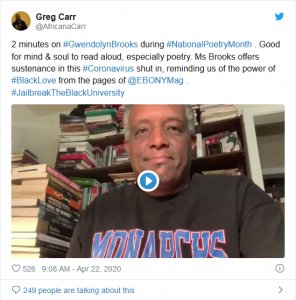
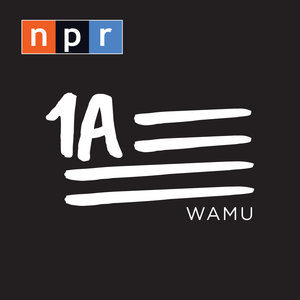
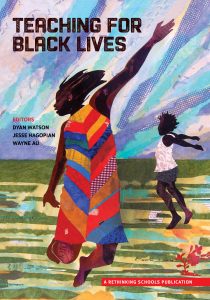
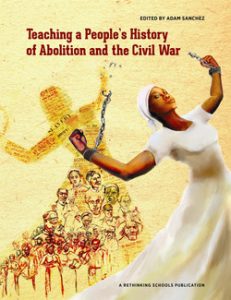
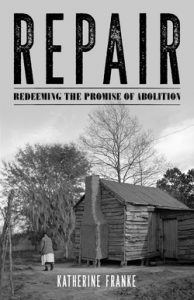
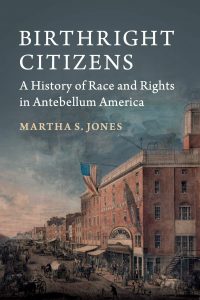
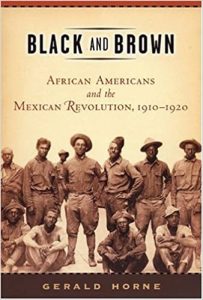
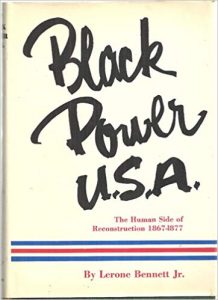
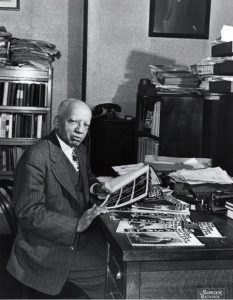

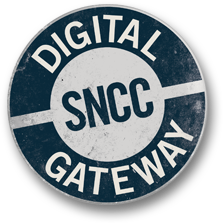
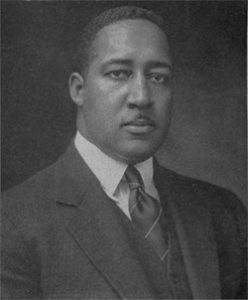
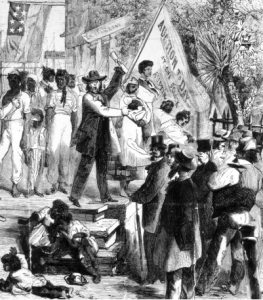
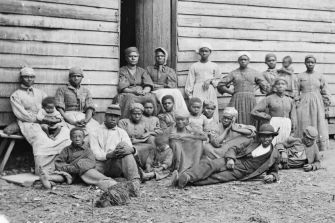
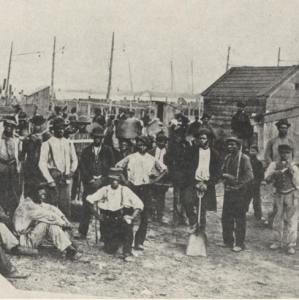
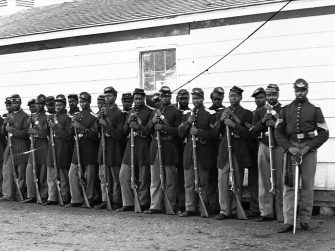
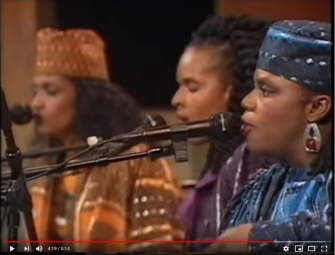





Twitter
Google plus
LinkedIn